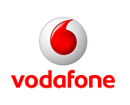 In the era of today’s “triple play” package of voice, data, and phone service, satellite television providers have been left at a competitive disadvantage. Both Dish Network and DirecTV can sell you all the television signals you want, but their satellite-based distribution limits the options to include broadband and telephone service in the package. Now Dish wants to convert some of their satellite spectrum to sell voice and data service over a network of land based wireless towers that will put the company in direct competition with AT&T and Verizon Wireless.
In the era of today’s “triple play” package of voice, data, and phone service, satellite television providers have been left at a competitive disadvantage. Both Dish Network and DirecTV can sell you all the television signals you want, but their satellite-based distribution limits the options to include broadband and telephone service in the package. Now Dish wants to convert some of their satellite spectrum to sell voice and data service over a network of land based wireless towers that will put the company in direct competition with AT&T and Verizon Wireless.
Dish CEO Charlie Ergen hopes to avoid making the same mistakes that threaten to kill a similar venture — LightSquared, because of interference concerns.
Dish’s spectrum is way, way up the radio dial, above 2,000MHz. Other spectrum users in the neighborhood are primarily low-powered, line of sight communications, often satellite-based. LightSquared’s service would have operated at around 1,500MHz, had it not obliterated reception of global positioning satellite services (GPS) in certain instances. Whenever new spectrum users begin to move into a neighborhood, those already there feel threatened, primarily from the fear of interference problems.
Both LightSquared and Dish’s proposed services operate at considerably higher power than other incumbent users, and interference to existing services is a proven problem when sensitive reception equipment is unprepared to deal with signal overload. The Federal Communications Commission found just cause to deny LightSquared operating permission for precisely that reason. Ergen hopes to sell the FCC on a plan he says will avoid those interference problems.
Ergen’s spectrum doesn’t sit immediately next door to other, existing users. His frequencies are comparable to living the next block over, and there is a protective fence keeping the neighbors apart.
“It’s not as close to GPS, so it’s unlikely to interfere,” Matthew Desch, chief executive officer of Iridium Communications Inc., which operates more than 60 satellites, told Bloomberg News. “But the approval is going to take some time. The FCC is going to make sure they don’t have another LightSquared problem on their hands.”
Mike Marcus, director of Marcus Spectrum Solutions LLC adds Dish has some space between its frequencies — known as a guard band — and other users. Marcus believes Dish won’t have an interference problem unless existing wireless carriers market handsets and other equipment insufficiently selective to reject interference from higher powered users nearby.
But whether Dish will ultimately spend the billions required to build a nationwide satellite and land-based broadband and phone network to accompany its existing satellite service remains unknown.
Bloomberg reports Wall Street analysts may prefer Dish sell its spectrum assets for a quick profit. Barclays Capital estimates Dish’s spectrum could net the company about $7.3 billion. If AT&T or Verizon Wireless were buyers, it would also protect them from new competition in the wireless market.
Regulators may be prepared to limit any such sale, however. Industry analysts note a similar license for LightSquared required government approval before leasing capacity (or selling the network outright) to AT&T or Verizon Wireless. The government may seek the same limits on Dish Network’s spectrum.
Ergen may have the final word however.
Vijay Jayant, an analyst at ISI Group in New York:
If the government sets rules that limit how Dish can use the spectrum, Ergen may choose to hoard it, said Jayant, which could be antithetical to the government’s mission of promoting wireless competition.
“Dish isn’t a patsy for the government,” Jayant said. “Dish’s attitude is, ‘Make the rules fair and we’ll do the right thing. Make them unfair and we’ll sit on the spectrum,’ and it will be another black eye for the government.”


 Subscribe
Subscribe




